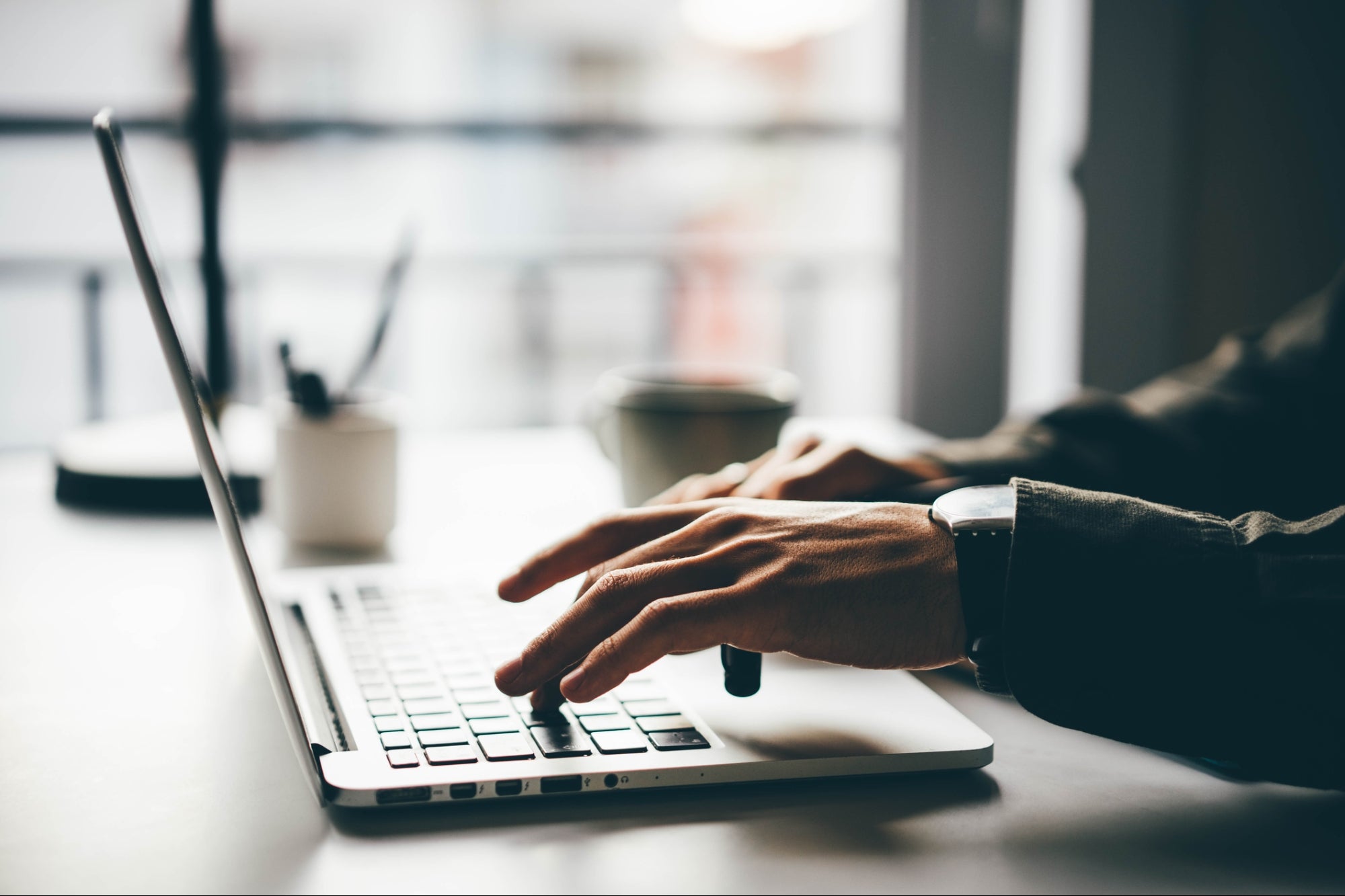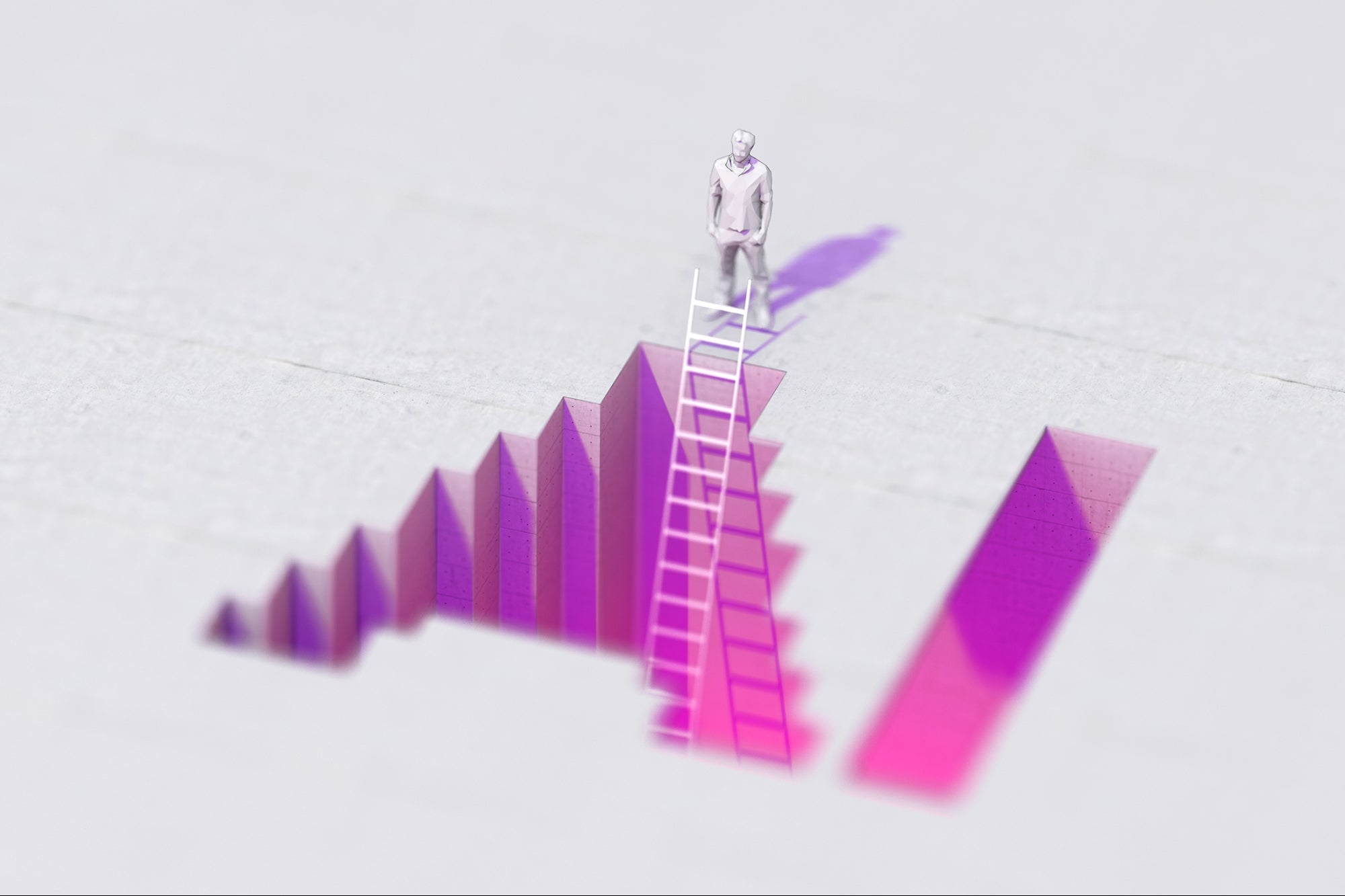The Truth About Multitasking, Once and For All Multitasking is a key skill you need to succeed. But don't confuse it with just being distracted.
By Steve Tobak Edited by Dan Bova
Opinions expressed by BIZ Experiences contributors are their own.
Want to hear something funny? I can't walk and chew gum at the same time. That's right, I really can't. I always end up biting my lip or my tongue. Granted, I do that sort of thing all the time – even when I'm asleep or just sitting and eating a sandwich – but still, it's worse when I'm moving.
Wait, it gets better. The other day, I bought my favorite prepackaged salad from Trader Joe's and plopped down under an oak tree in a nearby park to eat it. As I'm squirting the green goddess dressing out of its little packet with one hand and swiping my iPhone with the other, I somehow managed to flip the whole salad over.
One second I'm dressing a salad, the next second I'm looking down at a capsized plastic container with all its contents underneath, in the dirt. I still don't know exactly how it happened or which hand did it, but it had to be one of the two, since I'm pretty sure I don't have three.
If you guessed that maybe I'm an uncoordinated klutz with unsteady hands, you'd be right. I could never be a brain surgeon. But, it's always worse when I try to do two things at once. That's when disaster strikes.
Related: How to Gain Personal Freedom and Control
But you know what? When it comes to business, I'm an incredibly prolific multitasker. That's right, I am. Maybe one of the best. How can that be true, given that I can't even walk and chew gum at the same time or simply eat a salad while reading an email? Simple. They're not the same thing. Not even close.
That's right. I'm here to tell you that just about everything you've read about multitasking ever since it became a controversial social-media topic is either confusing two different concepts or just plain wrong. And I'm here to set the record straight and simplify what has become an annoying and unnecessarily confusing mess.
First of all, you will perform any single task better if you give it your undivided attention. This is not a news flash.
If you text or tweet when you should be paying attention to what someone is saying or doing, you will miss some information. Likewise, chefs can julienne veggies with greater accuracy and less chance of bloodletting if they're not simultaneously trying to read a recipe. I am floored that anyone has to conduct research to figure that out.
Related: How to Deal With Jerks
Now onto the only meaningful definition of multitasking. It starts with computers, but bear with me for a second, OK? In the 60s, computer architects came up with a new feature that enabled a single CPU or microprocessor to be interrupted so it could perform a higher-priority task before completing its original process.
Likewise, a processor waiting for input from a user or storage device could perform a second task in the meantime. These new functions came to be known as multitasking. While there is some overhead penalty associated with multitasking, it's small compared with the overall improvement in system performance.
Today, not only do all sophisticated microprocessors multitask, most of our devices have multiple processors to enable even greater parallelism. That's one of the main reasons why your computer and smartphone perform so much better than they used to, back in the day.
Now here's the thing. Everyone from small-business owners and doctors to construction workers and auto mechanics do exactly the same thing. We interrupt low priority tasks in favor of more critical ones all the time. We don't sit around and wait for information or an event to occur. We do something else instead.
That's multitasking. And just as with computers, it always improves overall performance at any management or organizational level.
For example, if you're a manager working on a low-priority report and an employee needs a decision from you so he can get a product out to a customer in the last FedEx shipment, it makes sense to interrupt what you're doing and answer his question. When the day is over, both tasks will be complete, but only because you allowed the interrupt.
I can give you similar examples in every line of work. That's what multitasking really is. It's absolutely critical to improving your effectiveness no matter what you do for a living. And if it's literally a no-brainer because you do it without thinking, that just makes you smarter and more effective than those it doesn't come naturally to.
One more thing. All the other stuff everyone calls multitasking – being so overloaded that they're never really present or texting and emailing when they should be working – that's not multitasking. That's called being distracted and not paying attention to what you're doing. It's dumb. And you don't need a study to tell you that, now do you?
Related: Note to Self: Be Aware











